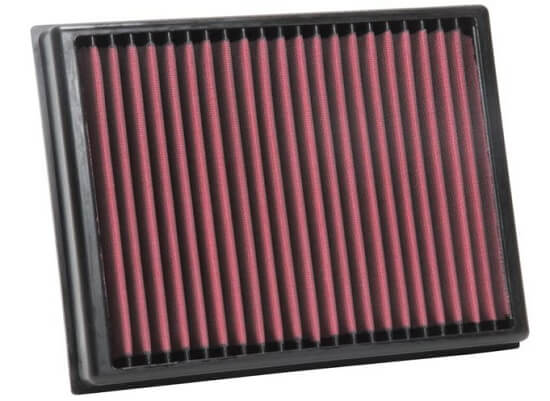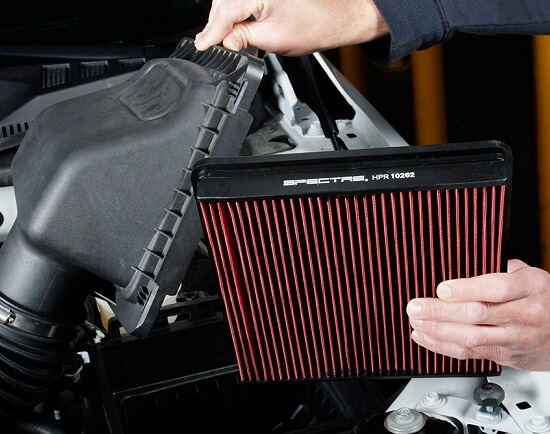
As gas prices continue to rise, many people are looking for ways to improve their vehicle’s fuel efficiency. One popular method is to install a high flow air filter, which promises to increase gas mileage and overall performance. But is this really true?
In this article, we’ll explore the science behind high flow air filters and their potential impact on gas mileage.
What is a High Flow Air Filter?
Before we dive into whether a high flow air filter can increase gas mileage, let’s first understand what it is. A high flow air filter is an aftermarket replacement for the original air filter in your vehicle’s engine. The purpose of the air filter is to prevent dirt, debris, and other particles from entering the engine and causing damage.
A high flow air filter is designed to increase the airflow to the engine, allowing it to breathe easier and potentially increase horsepower and torque. Unlike the original air filter, which is made of paper or cotton, a high flow air filter is typically made of foam or cotton gauze.
How Does a High Flow Air Filter Affect Gas Mileage?
Now that we know what a high flow air filter is, let’s explore whether it can actually increase gas mileage. The theory behind this is that by allowing more air into the engine, it will burn fuel more efficiently and therefore increase fuel economy.
However, the reality is that the impact of a high flow air filter on gas mileage is minimal at best. While it’s true that a high flow air filter can increase horsepower and torque, it’s unlikely to make a significant impact on gas mileage.
This is because modern engines are designed to run with a specific amount of air and fuel. If you increase the amount of air coming into the engine without also increasing the amount of fuel, you’re essentially creating a lean air-fuel mixture. This can actually decrease fuel economy and potentially cause damage to the engine over time.
Are There Any Other Benefits to a High Flow Air Filter?
While a high flow air filter may not significantly increase gas mileage, there are still some potential benefits to consider. These include:
- Improved acceleration: A high flow air filter can increase horsepower and torque, which can lead to faster acceleration.
- Longer lifespan: Unlike paper or cotton filters, which need to be replaced every 10,000 to 15,000 miles, a high flow air filter can last up to 100,000 miles with proper maintenance.
- Better engine sound: Some people enjoy the sound of a high flow air filter, as it can create a more aggressive engine sound.
Are There Any Drawbacks to a High Flow Air Filter?
While a high flow air filter may have some benefits, there are also some potential drawbacks to consider. These include:
- Cost: A high flow air filter can cost significantly more than a standard air filter, sometimes up to five times as much.
- Maintenance: A high flow air filter requires more maintenance than a standard air filter, as it needs to be cleaned and re-oiled periodically.
- Potential engine damage: As mentioned earlier, a high flow air filter can potentially create a lean air-fuel mixture, which can cause damage to the engine over time if not properly addressed.
Will a High Flow Air Filter Increase Gas Mileage?
High flow air filters are a popular aftermarket upgrade for many vehicle owners. They are designed to increase the air flow to a vehicle’s engine, which can improve engine performance and potentially increase gas mileage. But does the evidence support the claim that high flow air filters actually improve gas mileage? Let’s take a closer look.

Standard Air Filters vs. High Flow Air Filters
Standard air filters are designed to provide adequate air flow to a vehicle’s engine while also trapping contaminants. High flow air filters, on the other hand, are designed to increase air flow by reducing the resistance to airflow. This is achieved by using materials that are less restrictive than those used in standard filters, such as oiled cotton or foam. High flow air filters may also have a different design or construction that further reduces airflow resistance.
Testing the Impact on Gas Mileage
To determine whether high flow air filters actually increase gas mileage, several studies have been conducted. The results of these studies are mixed, with some showing an improvement in gas mileage and others showing no significant difference. Factors that can impact gas mileage include driving conditions, vehicle make and model, and the specific type of high flow air filter used.
Despite the mixed results of testing, many vehicle owners report improved gas mileage after installing a high flow air filter. It’s important to note, however, that any improvement in gas mileage is likely to be small and may not be noticeable to every driver. Additionally, the cost of a high flow air filter and any potential drawbacks should be weighed against the potential benefits before making a decision to install one.
FAQs
Can a high flow air filter improve gas mileage?
The evidence supporting the claim that high flow air filters can improve gas mileage is mixed. While some studies show an improvement in gas mileage, others show no significant difference.
Are high flow air filters more expensive than standard filters?
Yes, high flow air filters are often more expensive than standard filters due to their specialized materials and construction.
Are high flow air filters more susceptible to clogging than standard filters?
Yes, high flow air filters are generally more susceptible to clogging than standard filters due to their less restrictive materials.
Can a high flow air filter cause engine damage?
Some experts warn that high flow air filters can cause engine damage if not properly maintained, so it’s important to follow the manufacturer’s maintenance recommendations.
No, high flow air filters are designed to be a direct replacement for a vehicle’s standard air filter, and typically require no special installation.
Are high flow air filters legal?
Yes, high flow air filters are generally legal for use on vehicles, as long as they meet certain emissions and noise requirements.
Can a high flow air filter improve engine performance?
Yes, high flow air filters can improve engine performance by increasing air flow to the engine, which can lead to increased horsepower and torque.
How often should a high flow air filter be cleaned or replaced?
The maintenance requirements for high flow air filters can vary depending on the specific brand and model. However, in general, most high flow air filters should be cleaned or replaced every 15,000 to 30,000 miles.
Are there any potential drawbacks to using a high flow air filter?
Yes, some potential drawbacks of using a high flow air filter include increased susceptibility to clogging and potential damage to the engine if not properly maintained. Additionally, the cost of a high flow air filter should be considered before making a decision to install one.
Conclusion
In conclusion, high flow air filters have the potential to increase air flow to a vehicle’s engine, which can improve engine performance and potentially increase gas mileage. However, the evidence supporting the claim that high flow air filters actually improve gas mileage is mixed, and any improvement in gas mileage is likely to be small. Vehicle owners should weigh the potential benefits against the cost and potential drawbacks before deciding whether to install a high flow air filter.

Leave a Reply